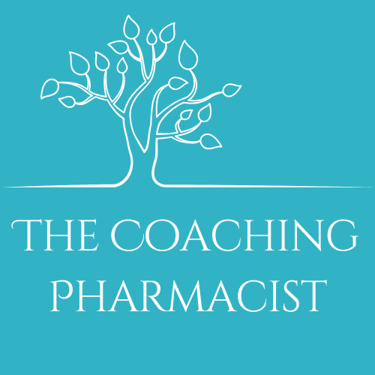Premature Ovarian Insufficiency
9/8/20253 min read


Living with Premature Ovarian Insufficiency (POI) and Early Menopause
Receiving a diagnosis of premature ovarian insufficiency (POI) or experiencing menopause earlier than expected can feel overwhelming. It may bring up worries about fertility, health, and the future. You are not alone — support and treatments are available to help you live well.
Emotional and Practical Support
Having POI can be emotionally challenging. Many women feel a sense of loss, confusion, or isolation. Reliable information and connection with others going through the same thing can make a big difference. The charity The Daisy Network and online support groups are safe places to share and find understanding. Counselling or psychosexual therapy can help if you’re struggling with mood, self-esteem, relationships, or intimacy. If your menopause is triggered by treatment such as chemotherapy or surgery, support should be offered before and after.
Lifestyle and Self-Care
Taking care of your body can help protect your long-term health:
Eat well — a balanced diet with enough calcium and vitamin D supports bone strength.
Move often — regular weight-bearing exercise (like walking, dancing, running) helps your bones and heart.
Look after your heart — avoid smoking, and keep alcohol low.
Small, consistent steps can build resilience for the future.
Bone and Heart Health
Because POI lowers oestrogen earlier in life, there is a higher risk of bone thinning (osteoporosis) and heart disease.
A DEXA scan is usually recommended at diagnosis to check bone strength.
Further scans may be needed depending on your results and treatment.
Most women are not advised to take long-term strong bone drugs (like bisphosphonates) unless seen by a specialist, as these may affect future fertility and carry other risks.
Hormone Replacement Therapy (HRT)
HRT replaces the hormones your ovaries would normally make. It eases symptoms such as hot flushes, improves sleep and mood, and protects your heart and bones. Continue until at least the usual age of menopause (average in the UK is 51).
Vaginal oestrogen can help with dryness, discomfort, or urinary changes.
Younger women with POI tend to benefit more and face fewer risks from HRT compared to women who start HRT in their 50s.
Some women describe HRT as giving them back their “spark” and sense of self.
Fertility and Family Building
Ovarian activity in POI can be unpredictable. Around 5–10% of women may still become pregnant naturally after diagnosis.
If you do not want to conceive, contraception is important (HRT alone is not contraception unless used with an IUS).
If you would like children, options include:
IVF with donor eggs
Adoption or fostering
Oocyte (egg) freezing for those at high risk or before treatments that may damage ovaries.
It can be painful to face uncertainty about fertility. Talking with a fertility specialist and support groups can help you explore your options with compassion.
Early Menopause (Age 40–45)
Menopause usually happens around age 50. If it occurs between 40 and 45, it’s called early menopause. About 1 in 10 women go through this.
Like POI, it may increase the risk of heart and bone changes, and can also affect emotions and quality of life.
HRT is often recommended to manage symptoms and protect long-term health, unless there are contraindications.
If you don’t have symptoms, the decision to take HRT is personal and should be guided by your health history and preferences.
Remember
POI and early menopause can feel isolating, but you are not alone.
Support is available through healthcare professionals, charities, and peer groups.
Treatment can help protect your health and improve your wellbeing.
With the right support, many women with POI and early menopause live full, healthy, and fulfilling lives.
References
NICE. Menopause: diagnosis and management (NG23). Updated 2024.
British Menopause Society. Premature ovarian insufficiency: management guidance. 2023.
NEJM 2023;388:154. Primary ovarian insufficiency overview.
BMJ 2024;384:e077469. Genetic and autoimmune causes of POI.
Climacteric 2020;23(5):426. Role of AMH in diagnosing POI.
Lancet 2024;403:958. Early menopause and long-term health implications.
European Society of Human Reproduction and Embryology (ESHRE) guideline on POI, 2024.
Get in touch
Subscribe to the mailing list (your details will not be shared)
GPhC registration, Claire Rice 2082362
The Coaching Pharmacist Ltd Company number 16802064 registered in England
